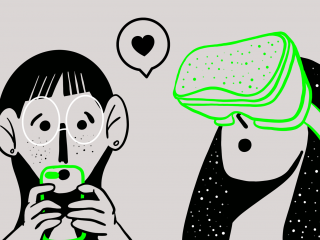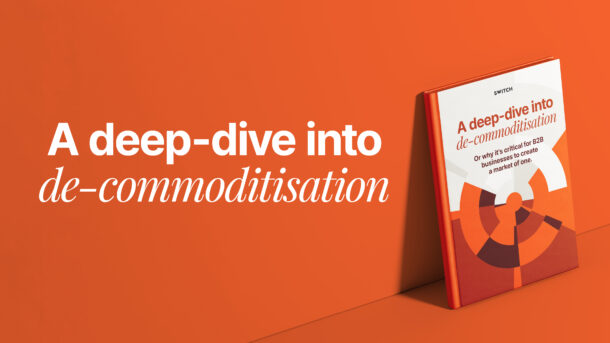Who would you think knows most about me? Would it be any one of my friends or an Artificial Intelligence? My friends know me. They have put up with me for long enough to know the quirks that make me different from everyone else. This gives them the ability to predict my behaviour to a fairly high level of confidence.
They won’t attempt a conversation with me about football that was played over the weekend, knowing I’ll have no clue – I don’t watch football. So, because they’re good friends, they don’t ask me to join when they’re watching a match. They realise that in the Venn diagram of our respective interests, football does not intersect.
This applies to most human relationships. We interact and, while doing so, share information about ourselves. The type of coffee I order shares my preference data with the barista and that allows for them to prepare the coffee I like. That’s as much as I share though. Anything else would not necessarily intersect.
We share much more data with close friends, family members, and significant others. Yet there is no one person who knows absolutely everything about us.
Enter the AIs that rule my world. Google, Amazon, eBay, Facebook – the lot – are different. They know more about me than any of my closest friends or family. After all, in the 21st century, humans exist to convert experiences into data that can be shared with other humans.
Most of our day is digitised to an extent we’re not actively aware of. Take a photo with your smartphone. It is analysed to determine its content and geotagged. If you search your photos for ‘dog’, ‘seaside’ or even “shellfish” your phone will give you a pretty accurate list of photos you’ve taken that it was busy analysing and categorising for your eventual convenience.
The same applies to the thousands of words we type into our connected devices all day – our chats, searches, social media interactions, emails – but it goes deeper. Our swipes and scrolls and the amount of time our cursor hovers over a specific part of a website is all ferreted away to contribute to the algorithms that are exceptionally skilful at gaining a deeper awareness of our thought processes.
So, while we share limited amounts of information with every human we interact with, our digital profile is probably the most complete assessment of our current state along with a comprehensive history of our past behaviours.
This might sound like a warning. It is not. There is no single massive AI that has access to absolutely everything and, more importantly, there is no algorithm (yet) that has an intent other than to use our data to improve our user experience and to tailor the targeting of promotional messages.
Which brings us to the flipside of the knowledge that AI has of our state. We can use it to be significantly more effective, and efficient, at creating and distributing our brand’s messages. With the mind-bogglingly detailed and granular information that’s available about every internet user, the blanket-bomb approach to marketing and advertising suddenly appears terribly archaic.
As marketing practitioners, we find ourselves in an awkward conundrum. Should we tailor our communication to humans or to the AI, such as Facebook and Google algorithms, that ultimately serve our messages to the humans who use the platforms? The answer lies in a carefully crafted strategy that does a bit of both. And it goes further – we listen to what humans are saying by analysing their behaviour to better serve the AI that acts as a delivery system.
This creates a virtuous cycle by which we analyse the performance of campaigns that are running, a real-time listening process, and further improve our messaging as we go along. In our white paper about Performance Marketing we go into the technicalities of this approach. If you spend 10c on digital marketing (or more than 10c) I strongly suggest you read this because it can help you dramatically increase the return on your marketing investment.
As we progress towards a more targeted form of marketing we approach a state that was portrayed effectively in the 2002 movie Minority Report. What was then sci-fi showed the protagonist walk through a shopping mall in which all advertising was tuned to him specifically, addressing him by name and suggesting products that would be interesting to him – including tank tops at Gap that would look great on a rather buff Tom Cruise. Two decades ago this was considered a wildly improbable scenario but the holy grail, the audience-of-one, is fast approaching. And as it does, your brand needs to be well placed to cut through the noise and deliver its messages in a way that’s specific, respectful, and completely relevant to its audience.
We hear brands complain that there is too much noise, that audiences are bombarded with so much promotional content that they tune it out. Done properly, we could very well reach a stage where our audiences finally feel that marketing is no longer tone-deaf, that it has finally understood the needs of the human and delivered just what we wanted when we wanted it. Maybe AI is the friend we truly need after all.




